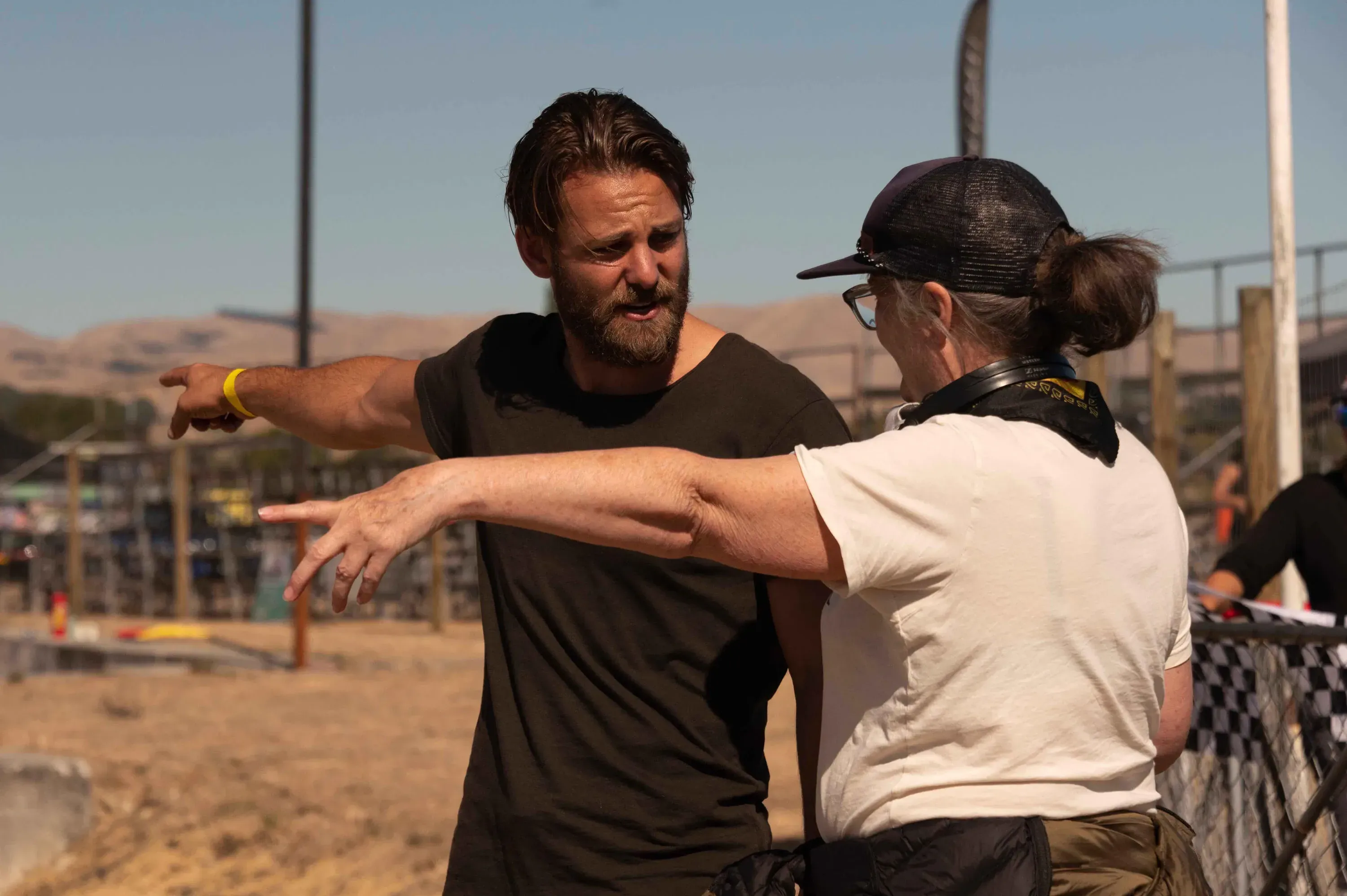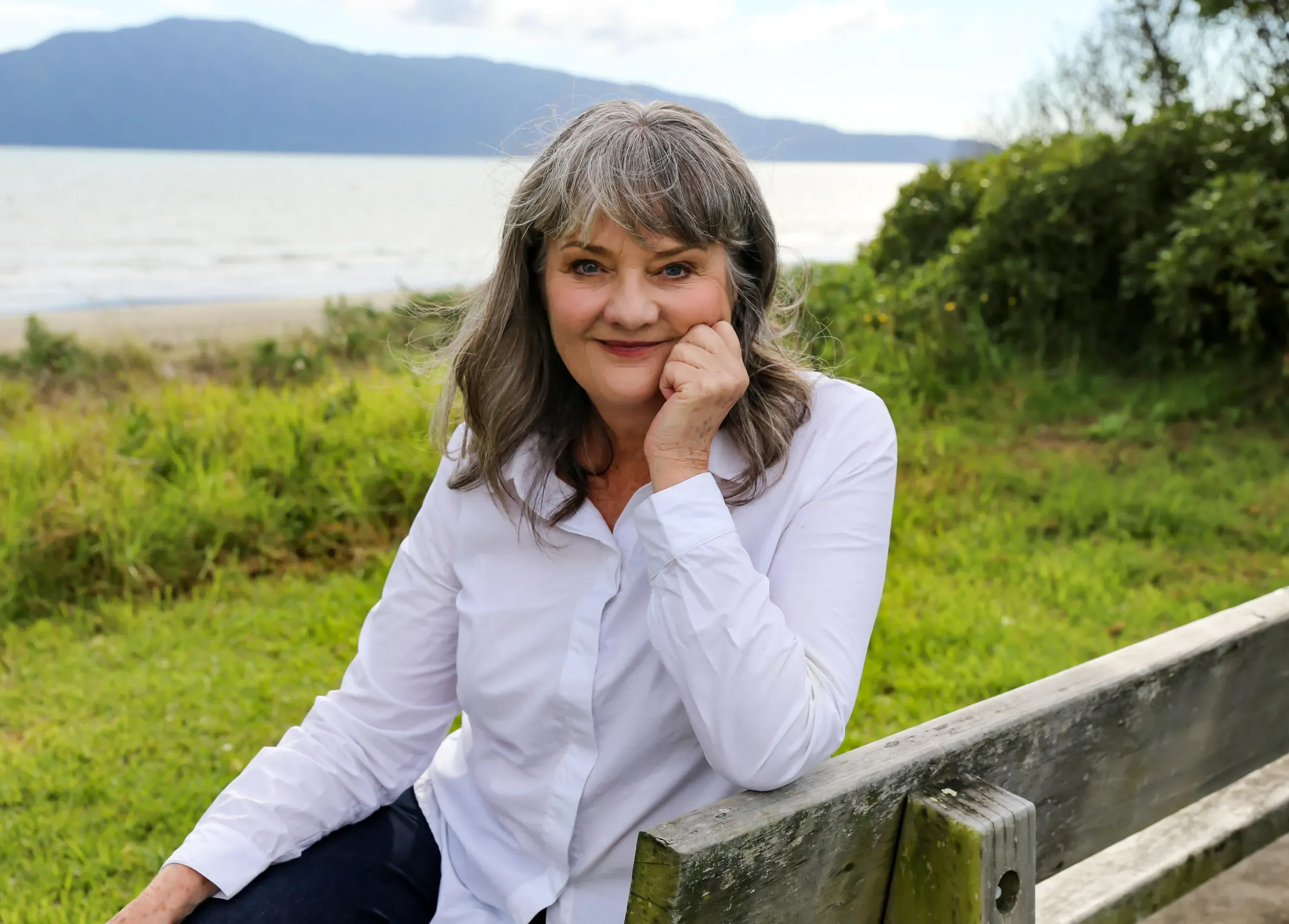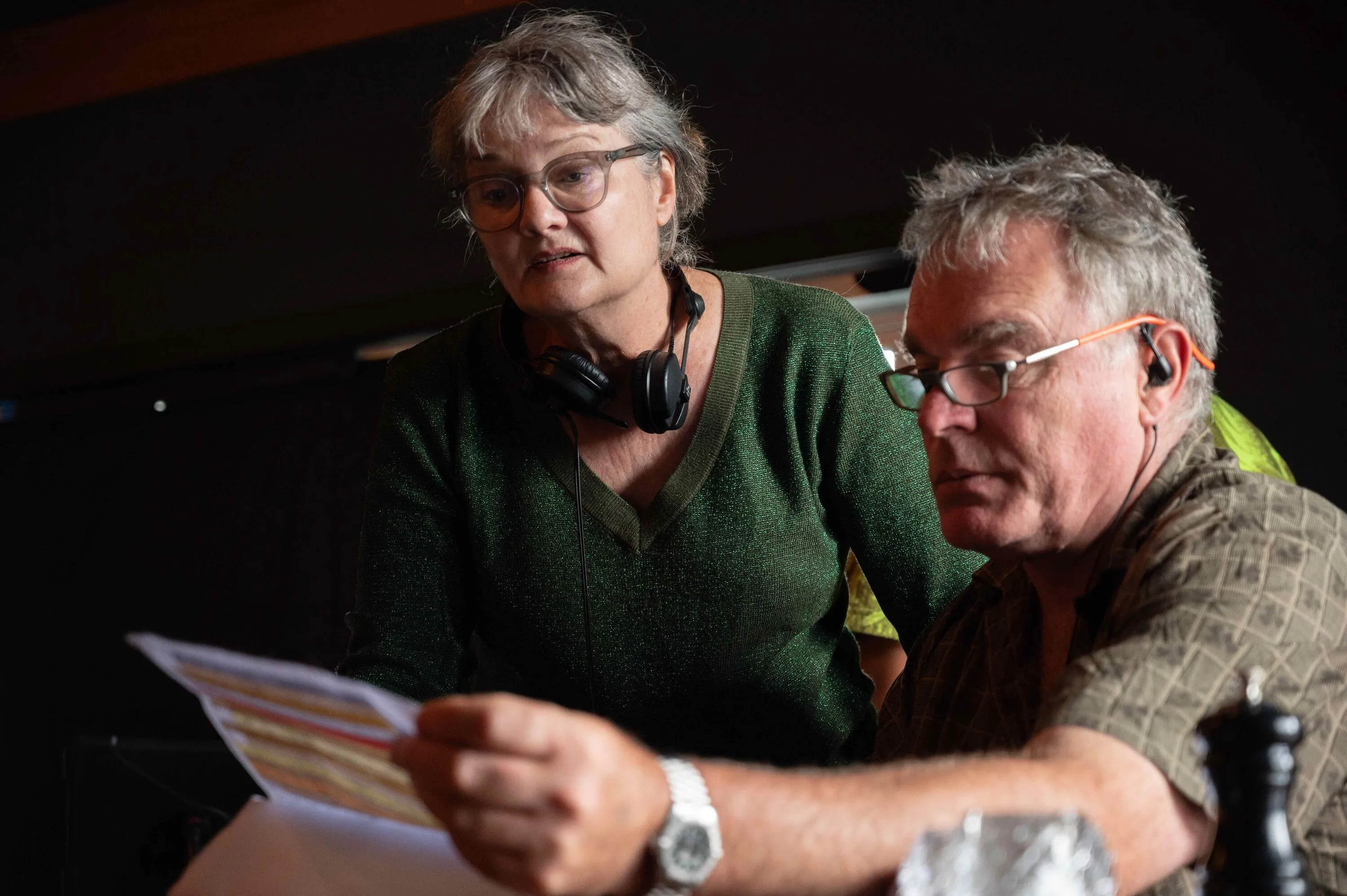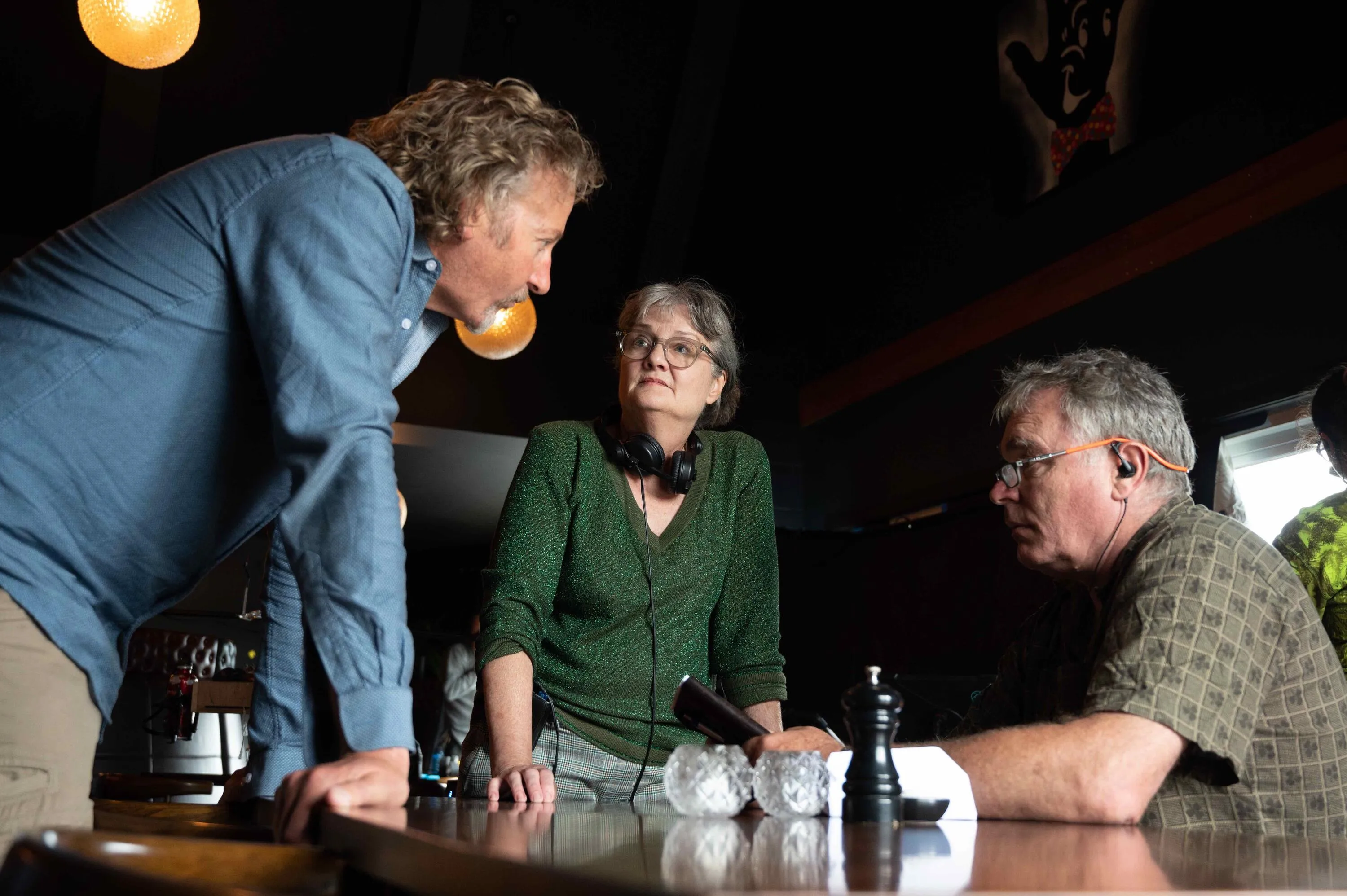Finding Funding: The Never-Ending Battle
Written by
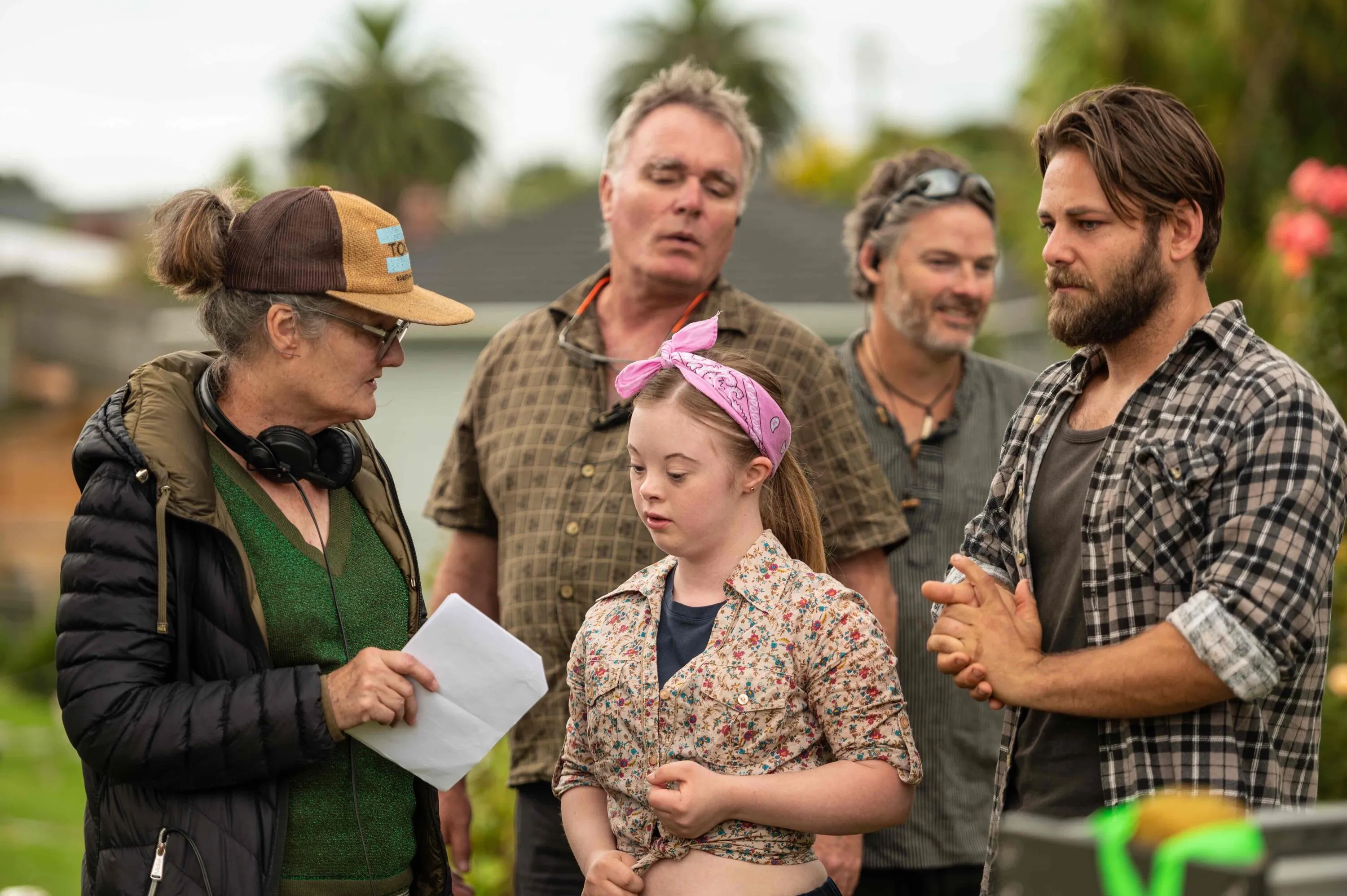
Despite her successful track record, securing funding was just one of many challenges screenwriter/director Linda Niccol faced while making Poppy, a movie about a young woman with an extra chromosome.
She has already stacked up a long list of achievements and accolades. Among them, Niccol scored a Kaos Films British Short Film Script Award and a US Best Shorts Award for The Handkerchief, then she co-wrote the New Zealand feature hit Second Hand Wedding.
Both her breakthrough short films were self-funded; Dangerous Ride through the money she received from Second Hand Wedding and The Handkerchief with crowd-funding on PledgeMe. She also relied on sponsors. Poppy is her first film that received funding from the NZ Film Commission thanks to the 125 Fund.
“The Commission wanted to celebrate 125 years of women's suffrage,” explains Niccol. “Poppy ticked a lot of boxes. It’s a film about a young woman with Downs Syndrome, made by women. Plus, it has a lot of women in lead roles. The 125 Fund gave us $1.25 million in equity which wasn’t quite enough to make the film. We also had to find private money and the balance came from a TVNZ presale.”
Money on the mind
A major impediment to making films in New Zealand, she explains, is the lack of a culture of private investment in the industry. And $1.25 million was never going to be enough to make the movie.
“It’s always been difficult in New Zealand. You always have to bring someone else to the party.”
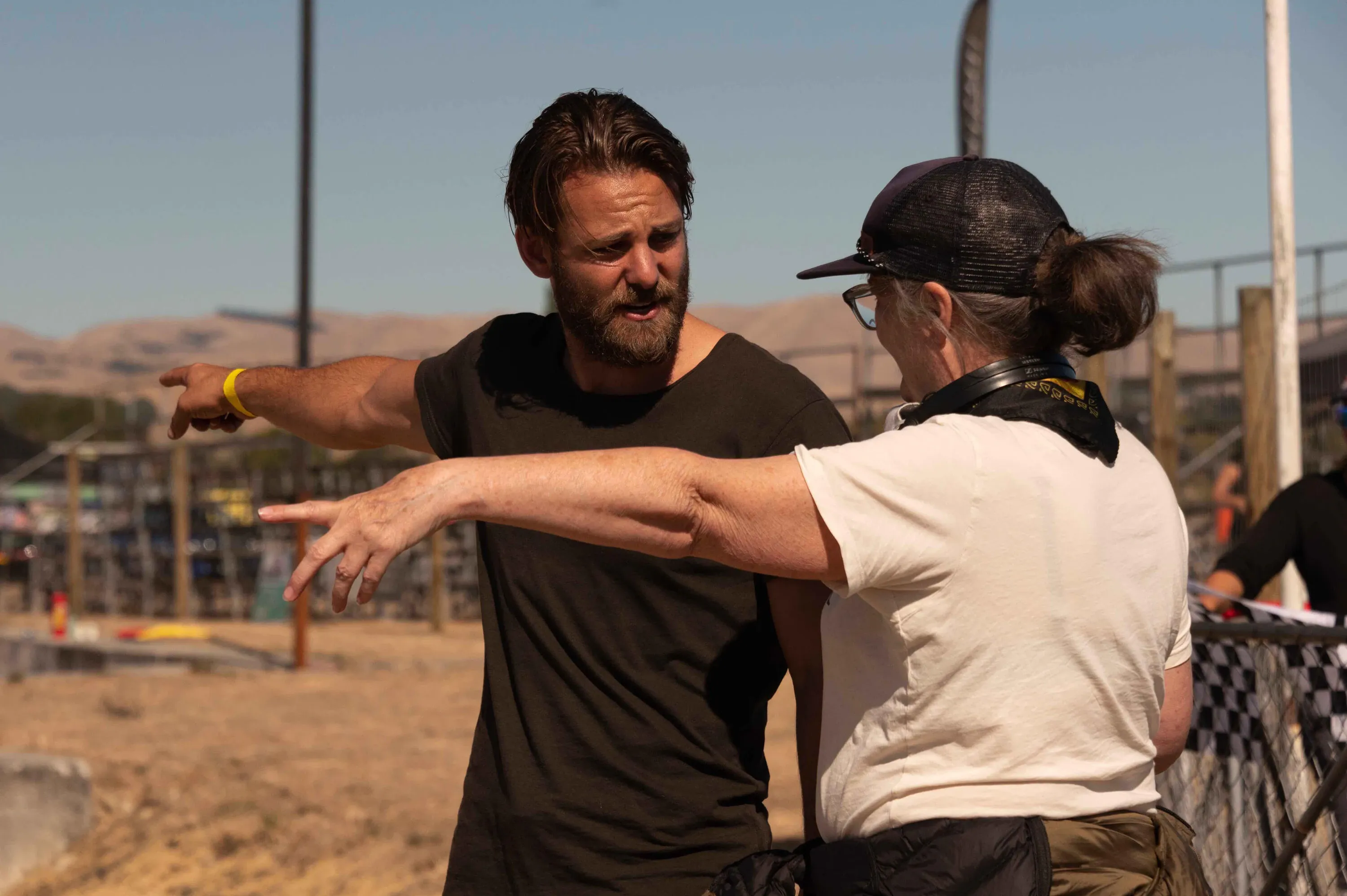
Linda Niccol with Poppy actor Ari Boyland. Photo: Supplied.
Timing had a lot to do with her good fortune too.
“The film could not have been made 10 years ago. Now, there’s an appetite to see disability on our screens.”
Plenty of heart
The story is a warm but gritty and layered tale of a woman’s search for independence as she tries to take control of her destiny.
“Poppy is about possibilities and capabilities rather than bowing to preconceptions. It’s saying, if life hands you an extra chromosome, you’ve got to make it count.”
Now is the time to celebrate diversity, says Niccol.
She originally wrote the story, which is in the same short story collection (The Temperature of Water) as The Handkerchief, from Luke’s (the male support role) perspective. As she started the process of developing it into a film script, she decided to rewrite it with Poppy as the protagonist.
“It was a big change but one that just made so much sense”, says Niccol.
Inspiration for Poppy’s character came from her sister Fiona, a former TV news director, who developed multiple sclerosis in her 30s and which led to the stigma of mental and physical disability. “She really opened my eyes and helped me understand how people perceive disabilities.”
Picking the perfect Poppy
Casting the Poppy character was another big challenge.
“You always hope that made-up person in your script will translate to a role which an actor to bring to life in the film,” Niccol says.
The casting director from Catch Casting combed New Zealand for the right person and Niccol had also formed relationships with various young women with Down Syndrome over the years. Eventually, they had about 22 hopefuls that came forward as possibilities, all with experience and acting ability.
“We were at the stage where we were making serious considerations. They were good but not quite perfect. Then Libby Hunsdale’s grandmother saw an article about the casting process and approached us.”
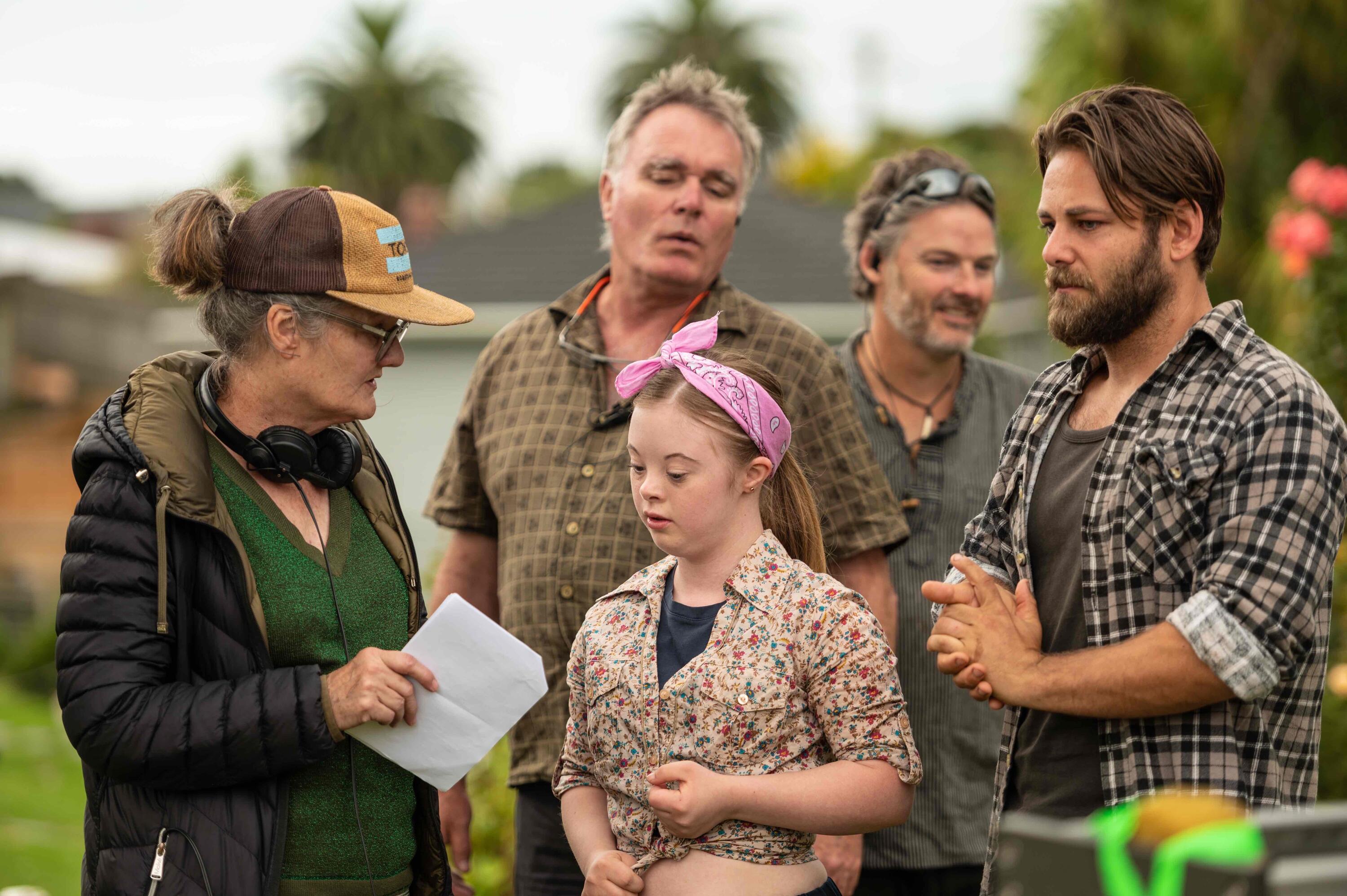
Linda Niccol (left) working with Poppy lead actor Libby Hunsdale (centre). Photo: Supplied.
Niccol watched Hunsdale’s YouTube channel showing tips on what make-up you should wear to school and dancing.
“She was such a performer! She had charm and I knew she could take on a role.”
Niccol went to see her in her hometown of Whanganui and filmed her doing a few things including dancing and reciting a monologue.
“I was so amazed how she could take direction. She had a persuasive pitch as to why she should be Poppy too. I knew I’d found her. We also had to convince everyone else. It was a fantastic experience.
“But getting to know her as a person and seeing her perform, I realised there is a big difference.”
Special support
Hunsdale is pivotal to the success of the film. So Niccol had to invest a lot in bringing her to the right space to enable her to perform. The IHC Foundation supported her and helped with lessons from acting coach Miranda Harcourt. She had driving lessons and sat her driving test. She learned the basics of work as a mechanic in a garage. And Hunsdale was able to have an acting coach on set the entire time.
Hunsdale was rewarded with her own caravan. “Not even the director got that,” laughs Niccol.
“We had to put a lot around the actor. And that comes back to the budget. The budget gave us four weeks of filming. That’s very short. We had 42 locations in 21 days, 31 of those were achieved in 11 days.”
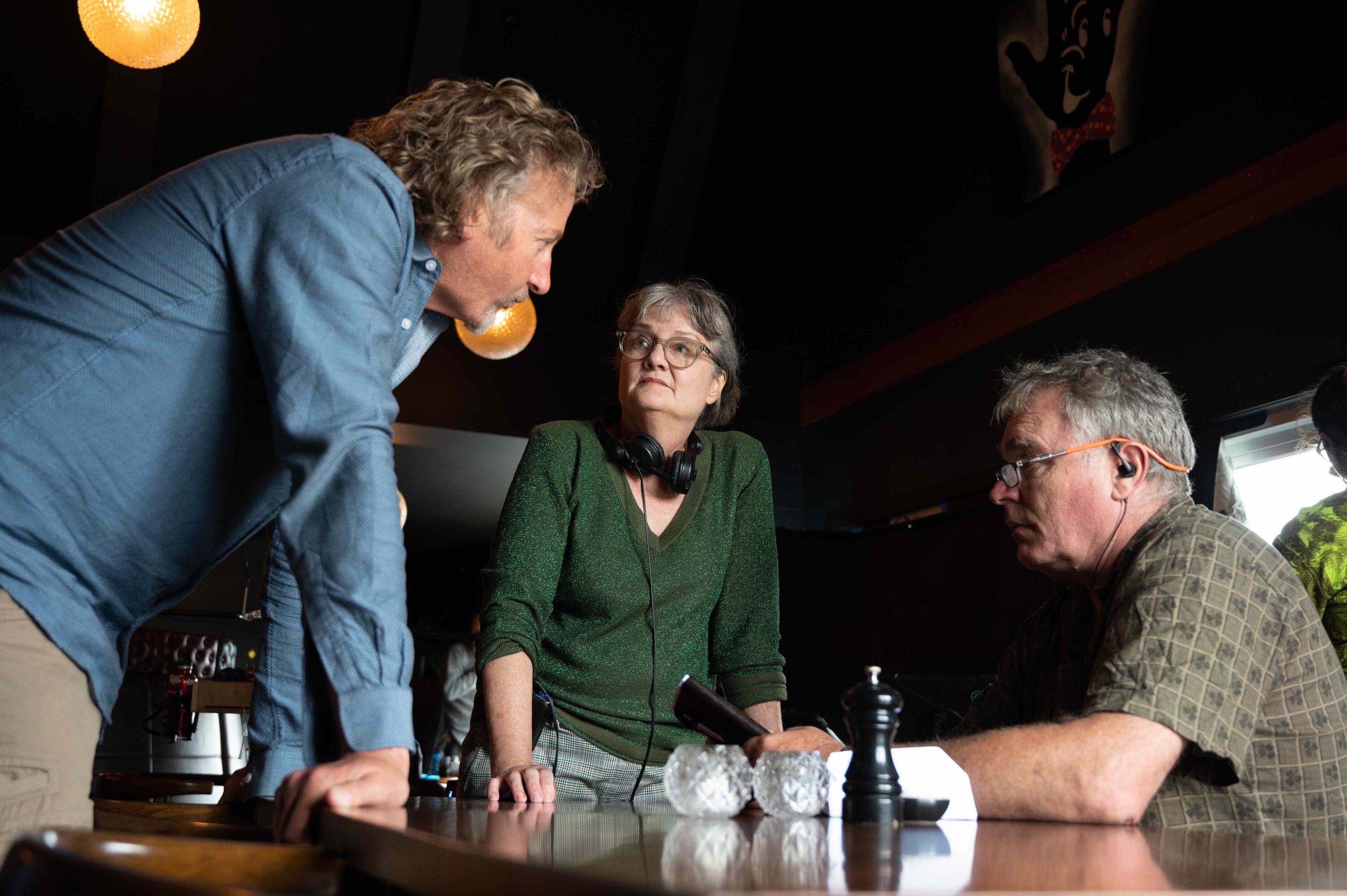
Linda Niccol with DOP Mathew Knight & 1st AD Joe Nolan. Photo: Supplied.
It was a major achievement achieving that timeline, made possible by brilliant scheduling from the “genius” first assistant director Joe Nolan. He took one look at Hunsdale and knew what he’d have to do to make it work without tiring her. It involved collaboration with an ultra-efficient camera/lighting team under Mathew Knight (Daffodils)
“This was not your usual production. Scheduling required really experienced heads of departments. But we had a great team.”
Then of course, there was COVID and the lockdown. It happened in the last week of the shoot on the Monday, recalls Niccol.
“It really did affect the filming. But in a good way because everyone got to have a breather. Some people put on weight during the break but Libby came back fit and energised.”
Advice for aspiring creatives
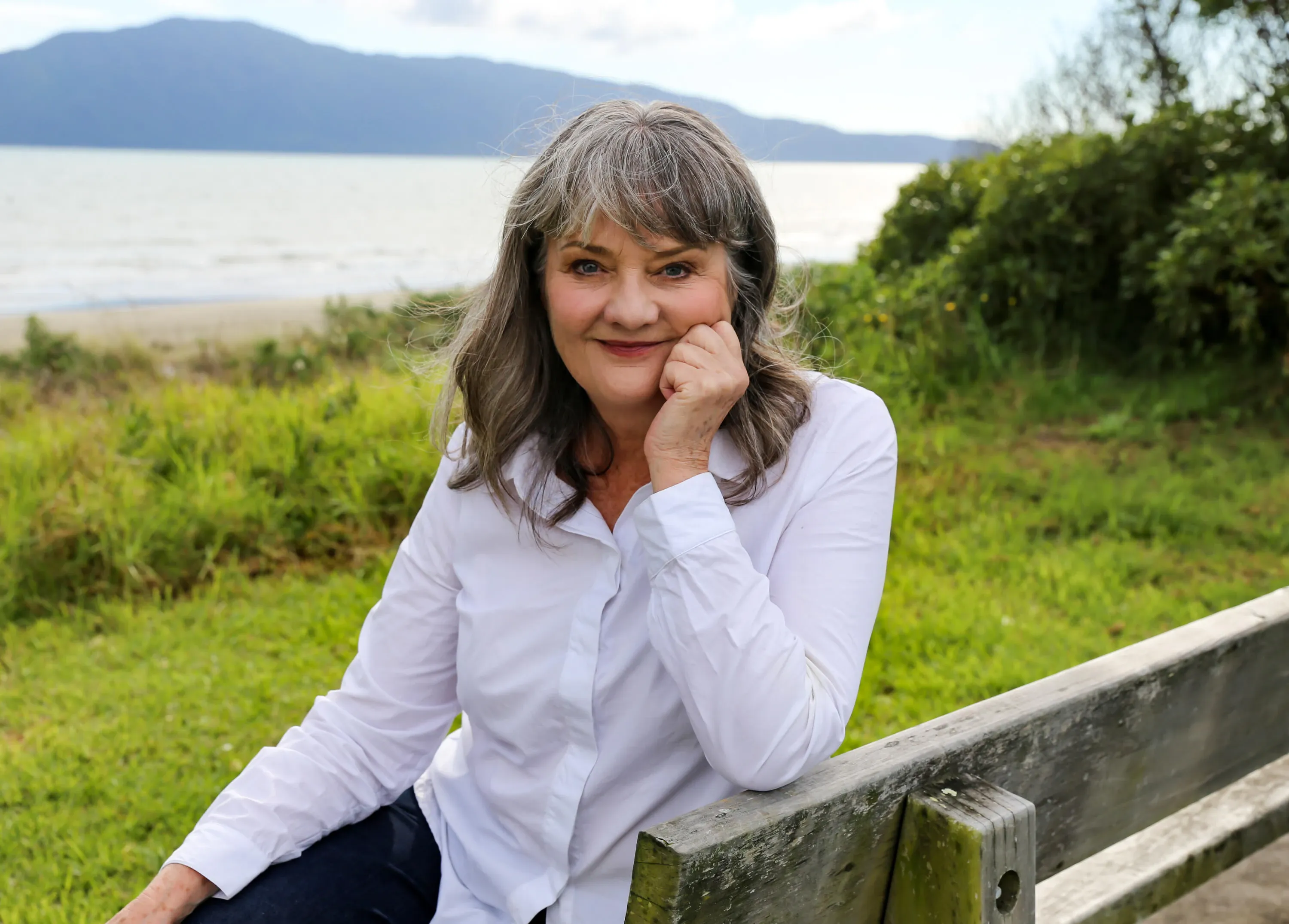
Linda Niccol. Photo: Supplied.
Niccol’s advice for others needing funds to bring their script to the screen is first to make sure they have a great script that resonates with what is happening now. You really have to think hard about what is going to make it through the system.
She also encourages creatives to benchmark their material in competitions and awards, something she has done for years. Poppy’s script has been thoroughly endorsed already, winning a Spirit Quest Film Festival top-five finalist for a feature film in 2014; it was a Socially Relevant Film Festival Screenwriting Award Winner in 2014 and a semi-finalist in Women Who Write in Film in 2019.
“I’ve been putting it out there, getting feedback and actually listening to what people say. That’s the key.
“I don’t know whether it will ever get easier,” she says. “It would be great if there were less bureaucracy involved – if people who had successfully made films and proven themselves before were supported the next time.”
Niccol hopes somebody will give her the opportunity to tell more stories and if she’s really lucky, she might get an agent to promote her. In the end, she says, it all comes down to having a fantastic, professional team who work well together on set. She certainly had that with Poppy.
The film was really well received in preview screenings and Niccol is looking forward to Poppy’s NZ release in selected cinemas later this month.
